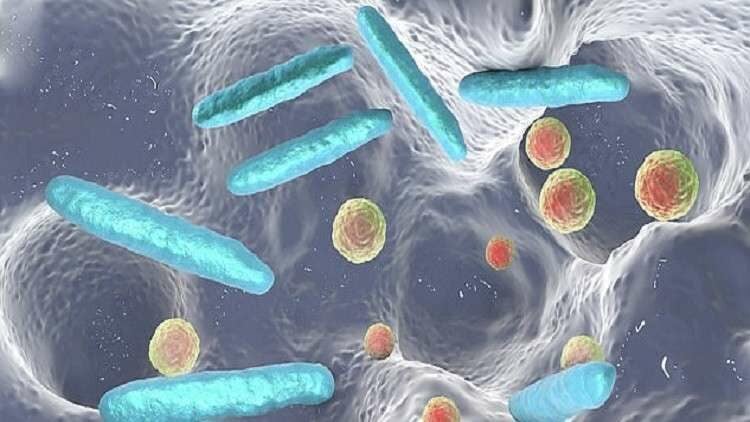
!Precise Revival" live in the human body associated with serious cancer"
NEW YORK (Reuters Health) - Scientists have linked some intestinal bacteria to an increased risk of colorectal cancer, according to two new studies.
Scientists found high levels of about 30 different bacteria in patients with the deadly disease, compared to healthy individuals.
Some bacteria were found in the mouth, while others were found in red meat and poultry, contributing to the conversion of nutrients into carcinogens.
The research team, led by the University of Sao Paulo in Brazil, says it hopes the results will help find new ways to examine, diagnose and treat cancer.
In the two studies published in Nature Medicine, scientists found 29 species of bacteria in cancer patients in the United States, Europe and Asia.
In the first study, the researchers examined more than 600 patient stool samples, and found that high levels of bacteria, usually found in saliva, also existed in stool samples of cancer patients.
This includes the bacteria of the mouth "Fusobacterium nucleatum", which plays a role in the incidence of gum disease, and also linked to colorectal cancer in the past.
"Large numbers of oral bacteria tend to migrate to the intestine in patients with colorectal cancer, which causes inflammation of the intestines, and therefore the tumor occurs," said Dr. Andrew Maltis Thomas. "However, we do not know the real cause of migration, but there is a link between the presence of these bacteria and cancer of the bowel and colon."
The second study, conducted by the University of Trento in Italy, found that choline (the main nutrient found in many foods) is destroyed by intestinal bacteria and converted to metabolites, which is necessary for metabolism.
In previous studies, this metabolite was associated with an increased risk of cardiovascular disease. Now, the team found it increases the risk of colorectal cancer.
Scientists say future studies will determine whether bacteria increase the risk of colorectal cancer, or that cancer plays an important role in the growth of certain bacteria.
Source: Daily Mail
“احياء دقيقة” تعيش في جسم الإنسان ترتبط بسرطان خطير!
كشفت دراستان جديدتان أن العلماء ربطوا بعض أنواع البكتيريا المعوية بزيادة خطر الإصابة بسرطان القولون والمستقيم.
ووجد العلماء مستويات عالية من نحو 30 نوعا مختلفا من البكتيريا، لدى المرضى المصابين بالمرض القاتل، مقارنة بالأفراد الأصحاء.
وعُثر على بعض أنواع البكتيريا في الفم، في حين وُجد البعض الآخر في اللحوم الحمراء والدواجن، حيث تساهم في تحويل المواد الغذائية إلى مسببات للسرطان.
ويقول فريق البحث، الذي تقوده جامعة “ساو باولو” في البرازيل، إنه يأمل أن تساعد النتائج على إيجاد طرق جديدة لفحص السرطان وتشخيصه وعلاجه.
وفي الدراستين اللتين نُشرتا في مجلة “Nature Medicine”، وجد العلماء 29 نوعا من البكتيريا لدى مرضى السرطان في الولايات المتحدة وأوروبا وآسيا.
وفحص الباحثون في الدراسة الأولى أكثر من 600 عينة من براز المرضى، ووجدوا أن المستويات العالية من البكتيريا الموجودة عادة في اللعاب، تتواجد أيضا في عينات براز مرضى السرطان.
وشمل ذلك بكتيريا الفم “Fusobacterium nucleatum”، التي تلعب دورا في الإصابة بأمراض اللثة، وارتبطت أيضا بسرطان القولون والمستقيم في الماضي.
وقال الباحث الأول، الدكتور أندرو مالتيز توماس: “تميل أعداد كبيرة من بكتيريا الفم إلى الهجرة نحو الأمعاء لدى مرضى سرطان القولون والمستقيم، ما يسبب التهابا في الأمعاء، وبالتالي يحدث الورم. ومع ذلك، لا نعرف السبب الحقيقي للهجرة، إلا أن هناك صلة بين وجود البكتيريا هذه والإصابة بسرطان الأمعاء والقولون”.
ووجدت الدراسة الثانية التي أجرتها جامعة “ترينتو” في إيطاليا، أن الكولين (العنصر الغذائي الأساسي الموجود في العديد من الأطعمة)، يجري تحطيمه بواسطة بكتيريا الأمعاء ويتحول إلى مستقلب، وهو ضروري لعملية التمثيل الغذائي.
وفي الدراسات السابقة، ارتبط هذا المستقلب بزيادة خطر الإصابة بأمراض القلب والأوعية الدموية. والآن، وجد فريق البحث أنه يزيد من خطر الإصابة بسرطان القولون والمستقيم.
ويقول العلماء إن الدراسات المستقبلية ستحدد ما إذا كانت البكتيريا تزيد من خطر الإصابة بسرطان القولون والمستقيم، أو أن السرطان يلعب دورا هاما في ازدهار أنواع معينة من البكتيريا.
المصدر: ديلي ميل
Comments
Post a Comment